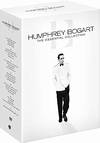





Donald O'Connor
Downloads | Links | Image Credits | SINGIN' IN THE RAIN
| Page 2 |
 O'Connor's big break into big budget movies came in 1952 when Gene Kelly chose him as his co-star for MGM's ground-breaking dance musical SINGIN' IN THE RAIN. A spoof of the movie industry and its struggle to convert from silent to talking pictures, SINGIN' IN THE RAIN was not a commercial success when first released, but it has since become recognized as one of the greatest movie musicals of all time. |
 In addition to his tap dances with co-stars Debbie Reynolds and Gene Kelly (including the "Moses Supposes" number pictured below), SINGIN' IN THE RAIN also gave O'Connor the opportunity to showcase his comedic energy and athletic dancing in "Make 'em Laugh" -- the most famous scene of his entire film career.
|
 Music Clips from SINGIN' IN THE RAIN (1952):
"Good Mornin'" (clip) sung with Gene Kelly and Debbie Reynolds: (For help opening the multimedia files, visit the plug-ins page.) |
 After SINGIN' IN THE RAIN, O'Connor stayed on at MGM to co-star for a second time with Debbie Reynolds in I LOVE MELVIN (1953), and after two more "Francis, the Talking Mule" films at Universal, he was loaned to 20th Century-Fox to appear with Ethel Merman, Vera-Ellen and George Sanders in Irving Berlin's CALL ME MADAM (1953), adapted from the Broadway play by Russel Crouse and Howard Lindsay. |
 In what is perhaps the second best-known movie musical of his career (behind SINGIN' IN THE RAIN), O'Connor played the heavy drinking son of vaudevillians Ethel Merman and Dan Dailey who falls in love with Marilyn Monroe in 20th Century-Fox's Cinemascope musical THERE'S NO BUSINESS LIKE SHOW BUSINESS (1954), again with music by Irving Berlin. Music Clips from THERE'S NO BUSINESS LIKE SHOW BUSINESS:
|
 In the last major film of his career under the studio system of the 1950s, O'Connor played the title character in Paramount's THE BUSTER KEATON STORY (1957), ostensibly about the life and career of the legendary silent film comedian. However, the film was not well received by critics or audiences who felt it took liberties with the facts of Keaton's life and saw its humorous moments as mere reenactments from the deadpan comic's films. |
|
Page 1 | Page 2 |
| Now in Print! |
|---|
Buy Videos & DVDs |
|
Buy Movie Posters |
|
Buy Movie Posters |
|
Classic
Movie Merchandise |
|
![]() Printer-friendly version.
Printer-friendly version.
![]() Return
to the top.
Return
to the top.
Last updated:
October 19, 2010.
Reel Classics is a registered trademark of Reel Classics, L.L.C.
© 1997-2011 Reel Classics, L.L.C. All rights reserved. No
copyright is claimed on non-original or licensed material.
Terms of
Use.









